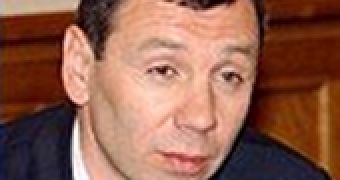During a video conference between Moscow and Washington, to which reporters from both countries participated, Russian State of Duma Deputy Sergei Markov shocked everyone when he claimed that his assistant launched the attacks that crippled the entire Estonian IT infrastructure back in 2007.
Sergei Markov is a Deputy in the State of Duma, the lower house of the Russian legislature, and a member of Russia's delegation to the Parliamentary Assembly of the Council of Europe (PACE). His "confession" was reported by Nargiz Asadova, a journalist for the RIA Novosti press agency and Ekho Moskvy (The Echo of Moscow) radio station, who moderated the conference call.
In a blog post (in Russian), Ms. Asadova notes that, when asked about cyberwarfare and particularly about the 2007 denial of service attack against Estonia, Sergei Markov astounded everyone when he replied with "About the cyberattack on Estonia... don't worry, that attack was carried out by my assistant. I won't tell you his name, because then he might not be able to get visas."
In 2007, the Estonian government decided to relocate a World Word II soviet memorial monument called "The Bronze Soldier," situated in the middle of the city of Tallinn, Estonia. The remains of soviet soldiers, on top of which the monument had been constructed, were also to be exhumated and reburied in a cemetery. This decision led to street riots in Tallinn and a siege on the Estonian embassy in Moscow by people who claimed that the government in the ex-Soviet country was being led by Fascist sympathizers.
The events were accompanied by severe denial of service attacks that disrupted the Internet connection across the country and, more importantly, affected the activity of financial and government institutions and websites, leading to significant losses. The Estonia government stated the attacks originated in Russia and claimed that they had been ordered by Russian officials through underground channels.
Since then, these claims have been tagged as pure speculation, but Mr. Markov's statement points to the fact that there is some truth to them. According to him, one of his assistants, who was in a "non-recognized republic" at the time, said to himself "I have to do something bad to these fascists," and instrumented the attack.
Mr. Markov explained that the attack escalated, because it gained support from many enraged Russian citizens. "It turns out that this was merely the reaction of the civil society and, incidentally, it will happen more and more," he concluded.
The unnamed assistant is likely to be Konstantin Goloskokov, commissar of the "Nashi" Youth Democratic Anti-Fascist Movement in Moldova and Transnistria, who already admitted to orchestrating the attack and was subsequently banned in 27 countries. In this case, the "unrecognized republic" that Markov spoke of would be Transnistria, a self-governing, separatist region in the Republic of Moldova.

 14 DAY TRIAL //
14 DAY TRIAL //